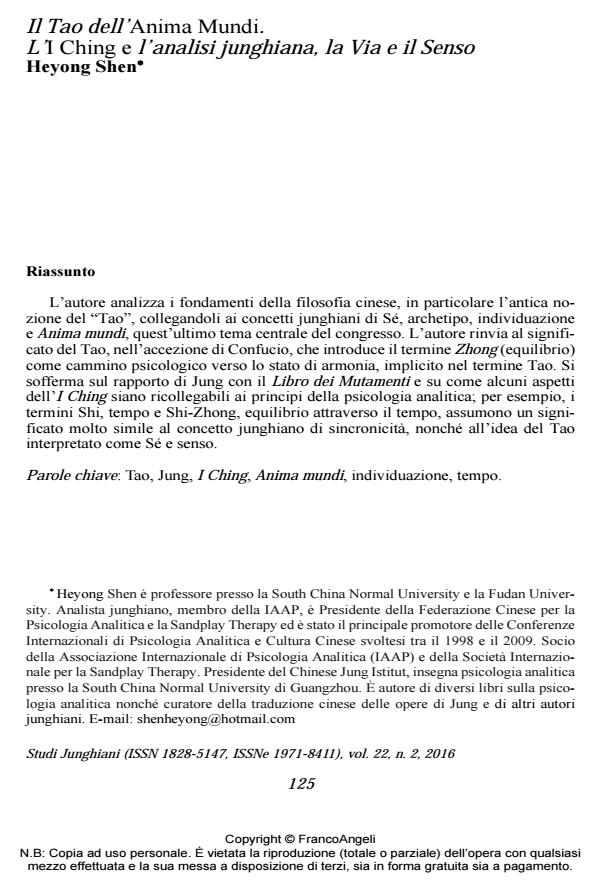The Dao of Anima Mundi: I Ching and Jungian Analysis, the Way and the Meaning
Journal title STUDI JUNGHIANI
Author/s Heyong Shen
Publishing Year 2017 Issue 2016/44
Language Italian Pages 20 P. 125-144 File size 427 KB
DOI 10.3280/JUN2016-044010
DOI is like a bar code for intellectual property: to have more infomation
click here
Below, you can see the article first page
If you want to buy this article in PDF format, you can do it, following the instructions to buy download credits

FrancoAngeli is member of Publishers International Linking Association, Inc (PILA), a not-for-profit association which run the CrossRef service enabling links to and from online scholarly content.
The author presents some Chinese philosophical ideas in order to discuss the ancient notion of "Dao", linked with the Jungian concepts of Self, archetype, Individuation process and Anima Mundi and related with the theme of the Conference. The author emphasizes the meaning pointed to by Confucius in introducing the term "Zhong" ("Equilibrium") as the psychological path to the state of harmony implied by the word Dao. The author will also mention the important relationship between Jung and I Ching and the so many aspects that connected the Book of Changes with the principles of analytical psychology; for example, the terms Shi, implied by the word Dao. The author will also mention the important relationship between Jung and I Ching and the so many aspects that connected the Book of Changes with the principles of analytical psychology; for example, the terms Shi, time and Shi-Zhong, equilibrium implied by the word Dao. The author will also mention the important relationship between Jung and I Ching and the so many aspects that connected the Book of Changes with the principles of analytical psychology; for example, the terms Shi, time and Shi-Zhong, equilibrium with time, balance through time, take on a meaning that reminds to the term synchronicity, developed by Jung and as well as the Dao concept interpreted as Self and meaning.
Keywords: Dao, Jung, Ching, Anima Mundi, Individuation, Timing.
Heyong Shen, Il Tao dell’Anima Mundi. L’I Ching e l’analisi junghiana, la Via e il Senso in "STUDI JUNGHIANI" 44/2016, pp 125-144, DOI: 10.3280/JUN2016-044010